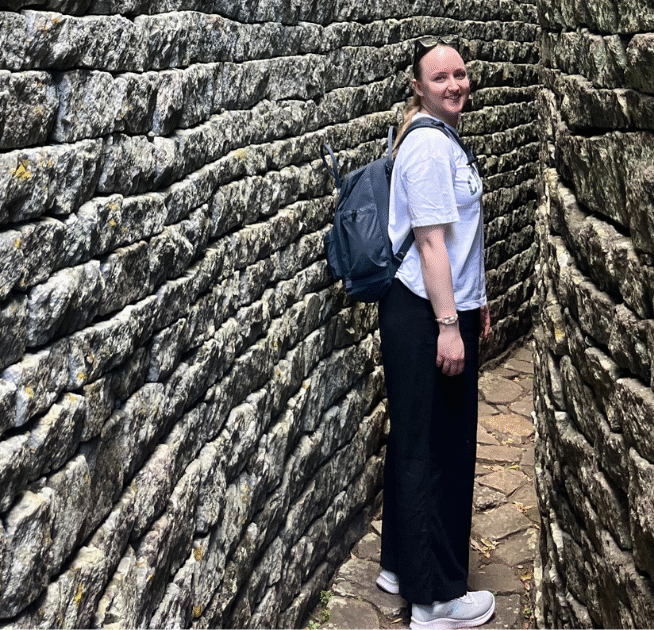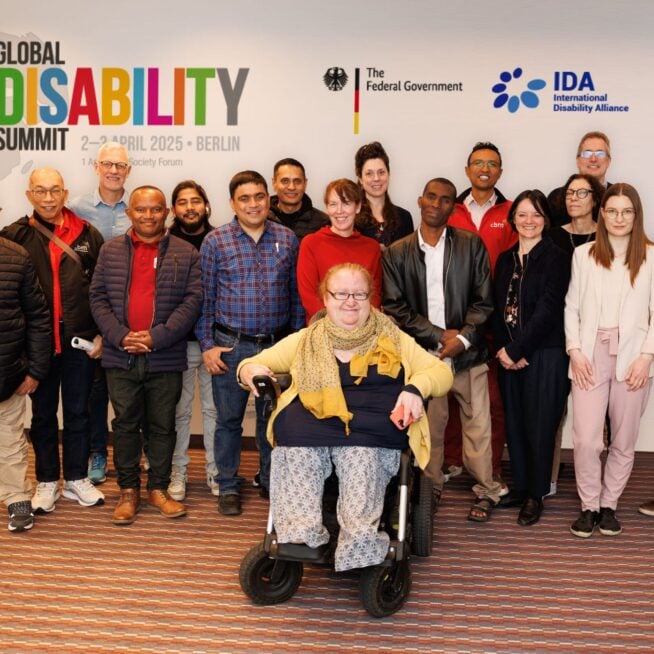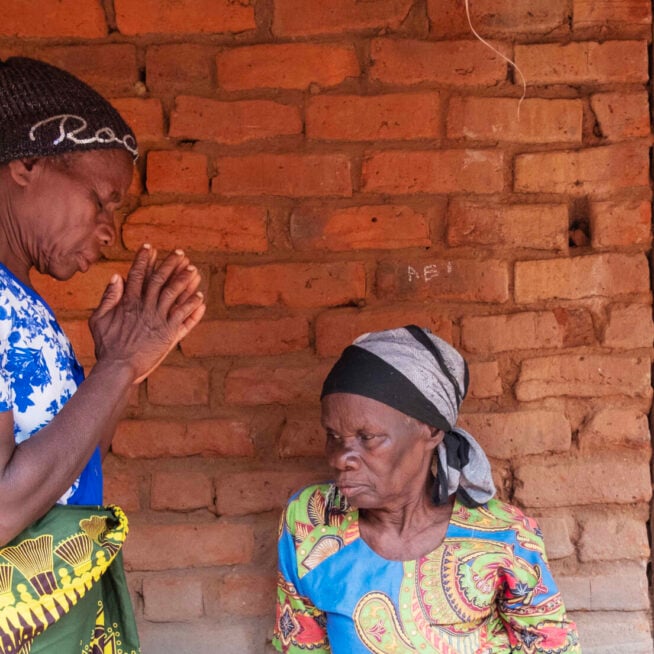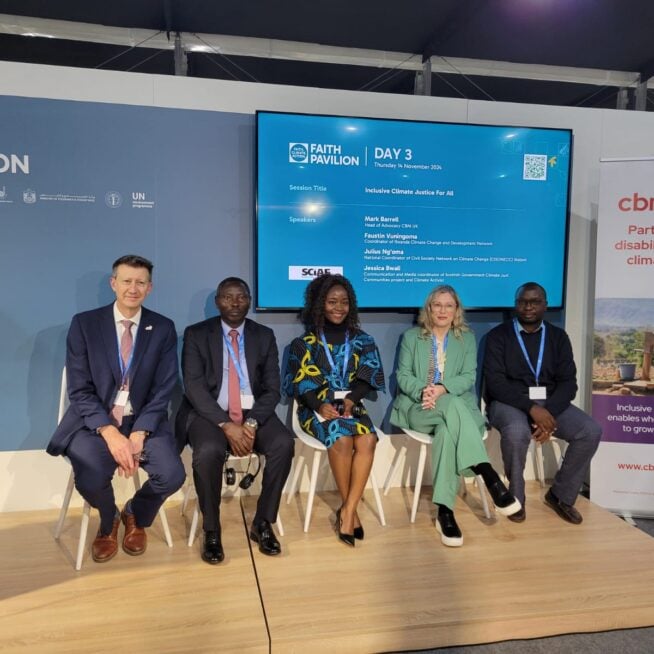Want to transform lives with us? Stay in touch and hear about our news, activities and appeals by email!
OPD Conversations: Inclusive Communications during COVID-19
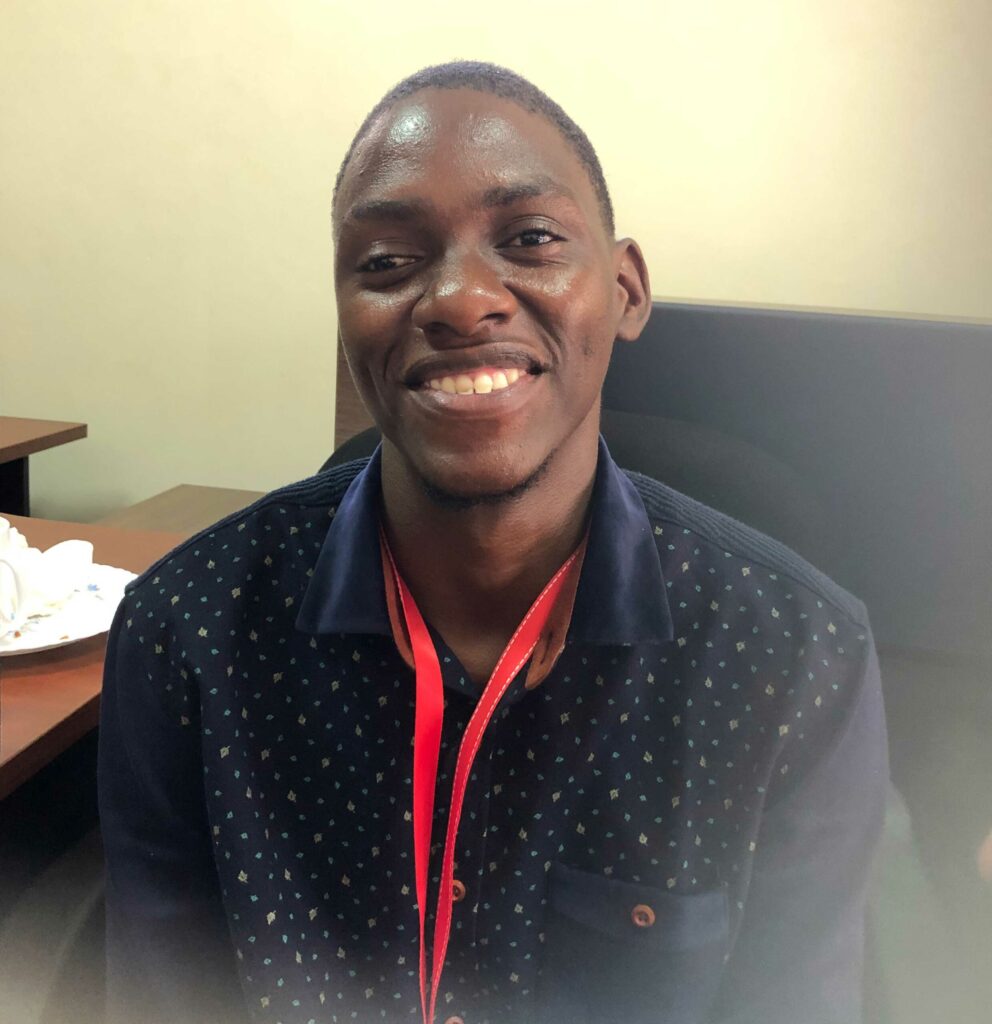
The COVID-19 pandemic has highlighted the vital importance of access to clear and accurate public health information, with very real implications for our health and safety. In this blog, we hear from four disability activists in Uganda on the challenges of accessing information during the pandemic, and also about how behaviour changes due to COVID-19 have brought new challenges, but also some opportunities.
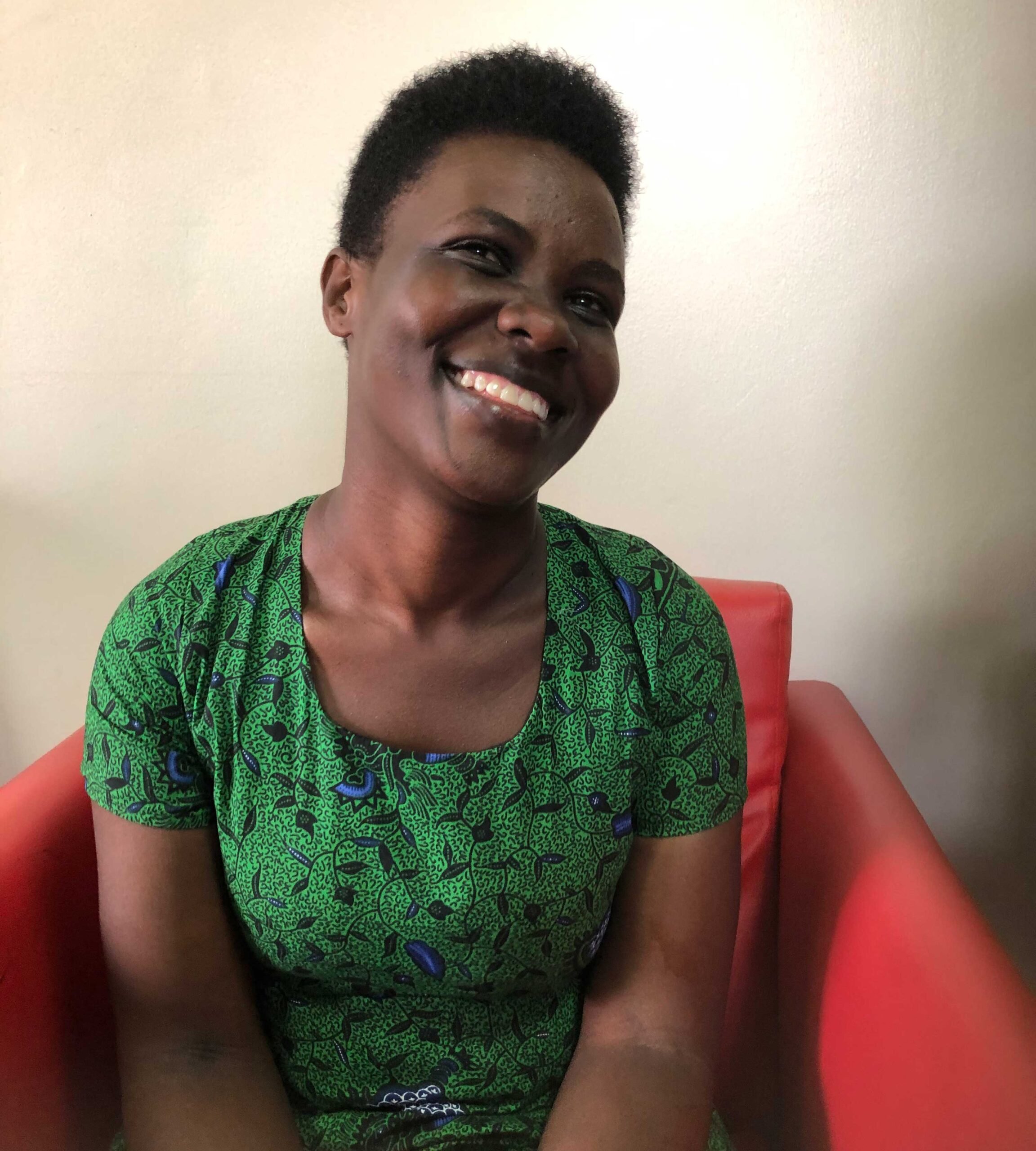
The lack of information provided in accessible formats has excluded many people with disabilities from receiving accurate and up to date information on the disease, as well as on ways to reduce risk and to access prevention and treatment. Christine Kirungi, Executive Director of the Uganda National Association of Cerebral Palsy, explains some of the challenges her organisation experienced in sharing information with their members during the pandemic:
“Communication during COVID was cut off, it was very hard for us, you know. Most of our members, they need a simplified communication in an easy-to-understand format so it was really complicated. We tried on a small basis to use community amplifiers – where someone goes in the public town and speaks on a microphone. But that one is not effective, because there are members with intellectual [disabilities] so you have to really be close to them, talk to them in the simplest way they can understand. So we can say that really COVID affected our information flow to our members.”
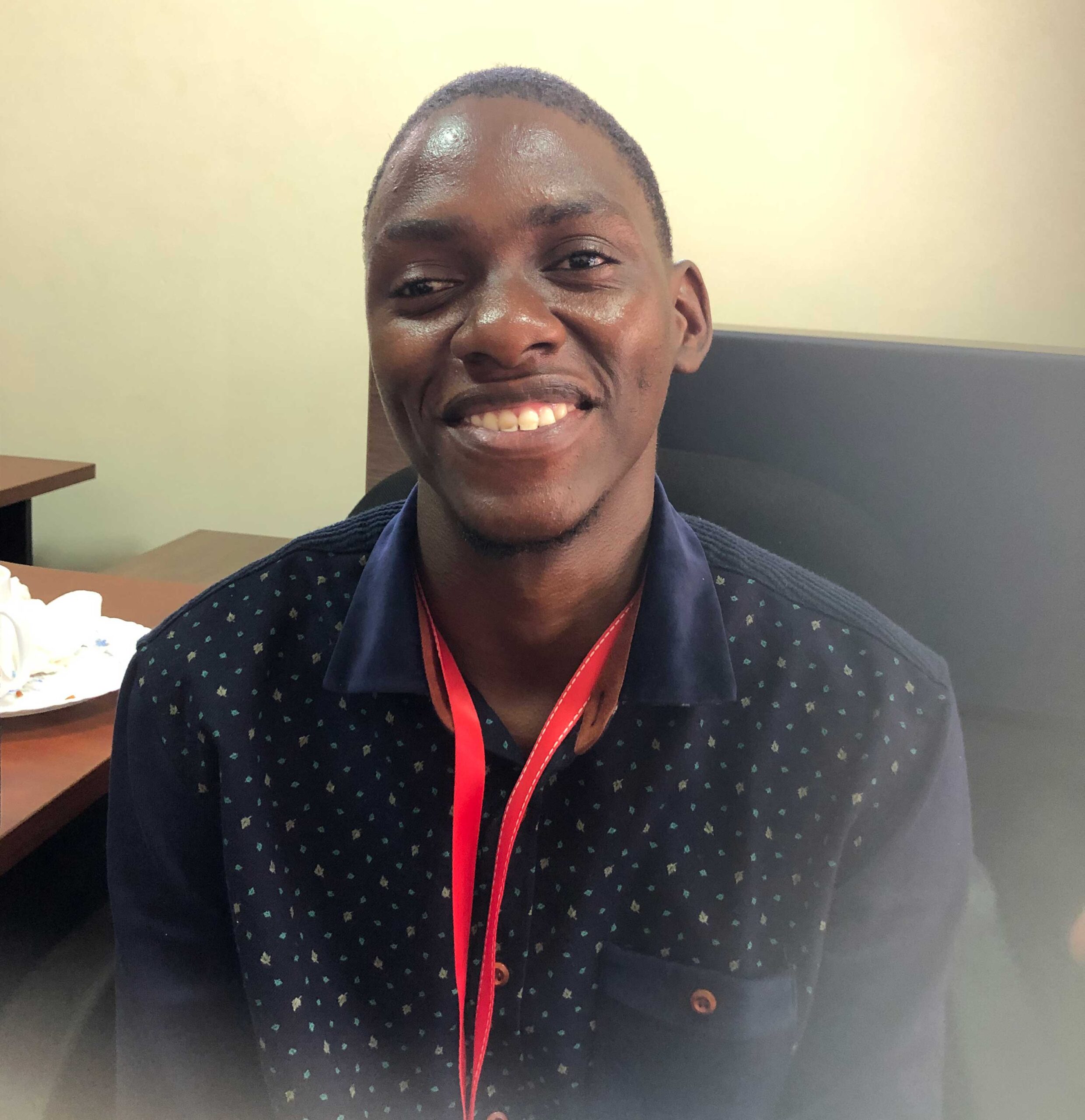
Mark Kato works for the Uganda National Association of the Deaf Blind and explained how assistive devices are critical to delivering COVID messages to the deaf blind community.
“The organisation devised basic means to make key message understandable by deaf blind persons – braille materials and sign interpreters were of very significant help to transmit a message.”
He highlights the massive difference that more inclusive provisions have made through the course of the pandemic. “Gradually there was significant progress, with the provision of transparent face masks, people to act as guides. Some people still criticised guides for not observing physical distance. To us it was reasonable accommodation.”
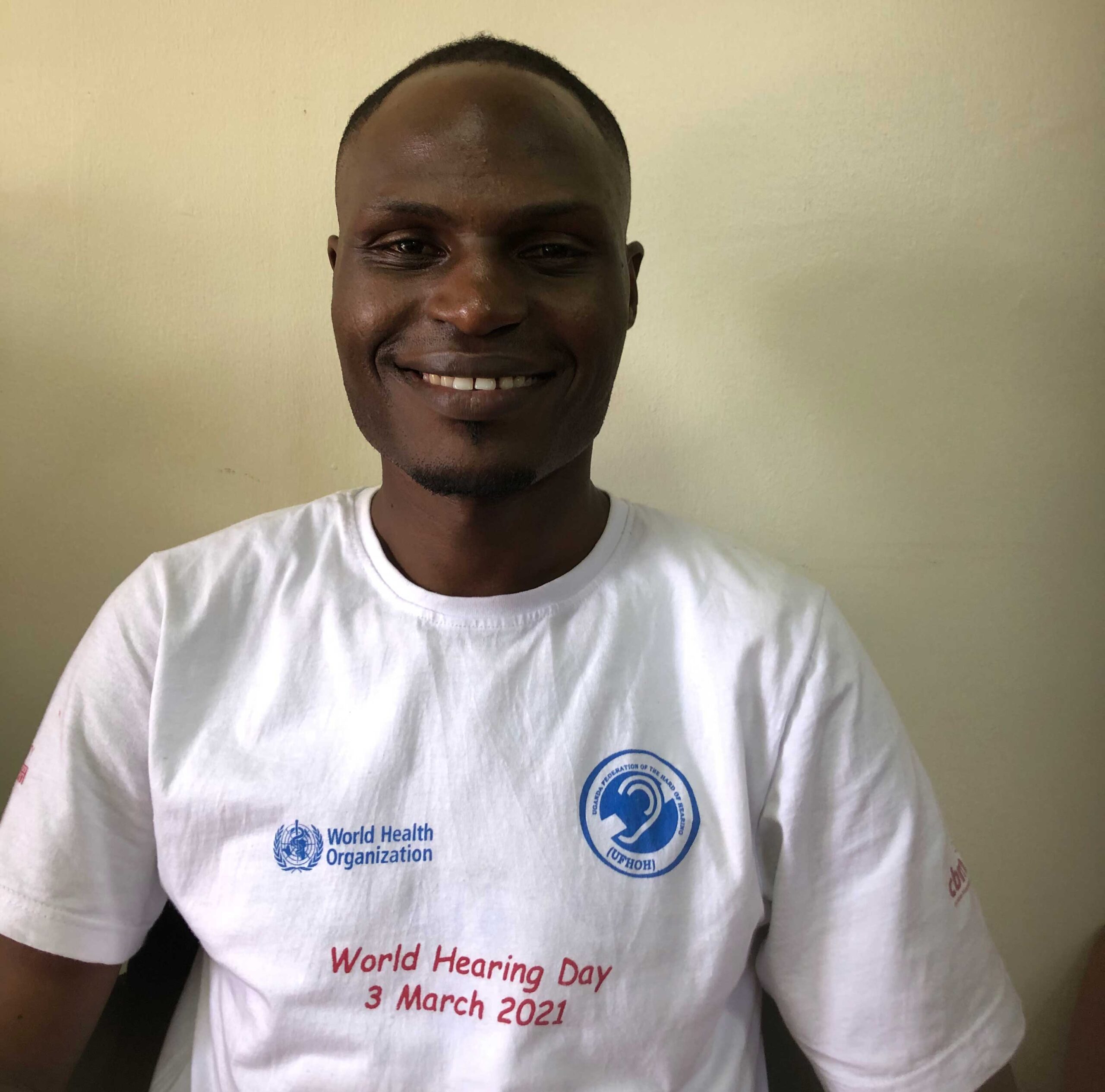
Moses Serwaddam, a Programme Manager for Ugandan Federation of the Hard of Hearing, explains that accessing information in the pandemic has been a huge problem for the hard of hearing community. “We felt that we were excluded and it could also risk us to get the disease.”
“Information accessibility in a pandemic has been a problem to many of us who are hard of hearing. Why? They haven’t prioritised the use of captions/sub-titles as a way to communicate to all of us.”
Lack of inclusive communications can have dangerous repercussions. Moses explains how deaf and hard of hearing people may be at risk of repercussions, if not do not hear and therefore do not follow spoken instructions and this is mistaken for non-compliance. They may also have to use unreliable sources of information if official channels are not accessible.
“We may be caught on the wrong side of the law. For example, we pay attention to the presidential address on COVID, the President could come and give important updates about COVID. But for sure, we are not having subtitles… if the communication channel is not inclusive, that is where we tend to get second hand information from people who are informing us second time.”
As someone who is hard of hearing, Brender Wanyana describes the new challenges that have arisen with the introduction of face masks:
“I’m used to lip reading, but because of COVID they adopted what they call face masks. So when I’m speaking with someone who is covering his or her mouth, I can totally not get the information, so many are left behind because of COVID.”
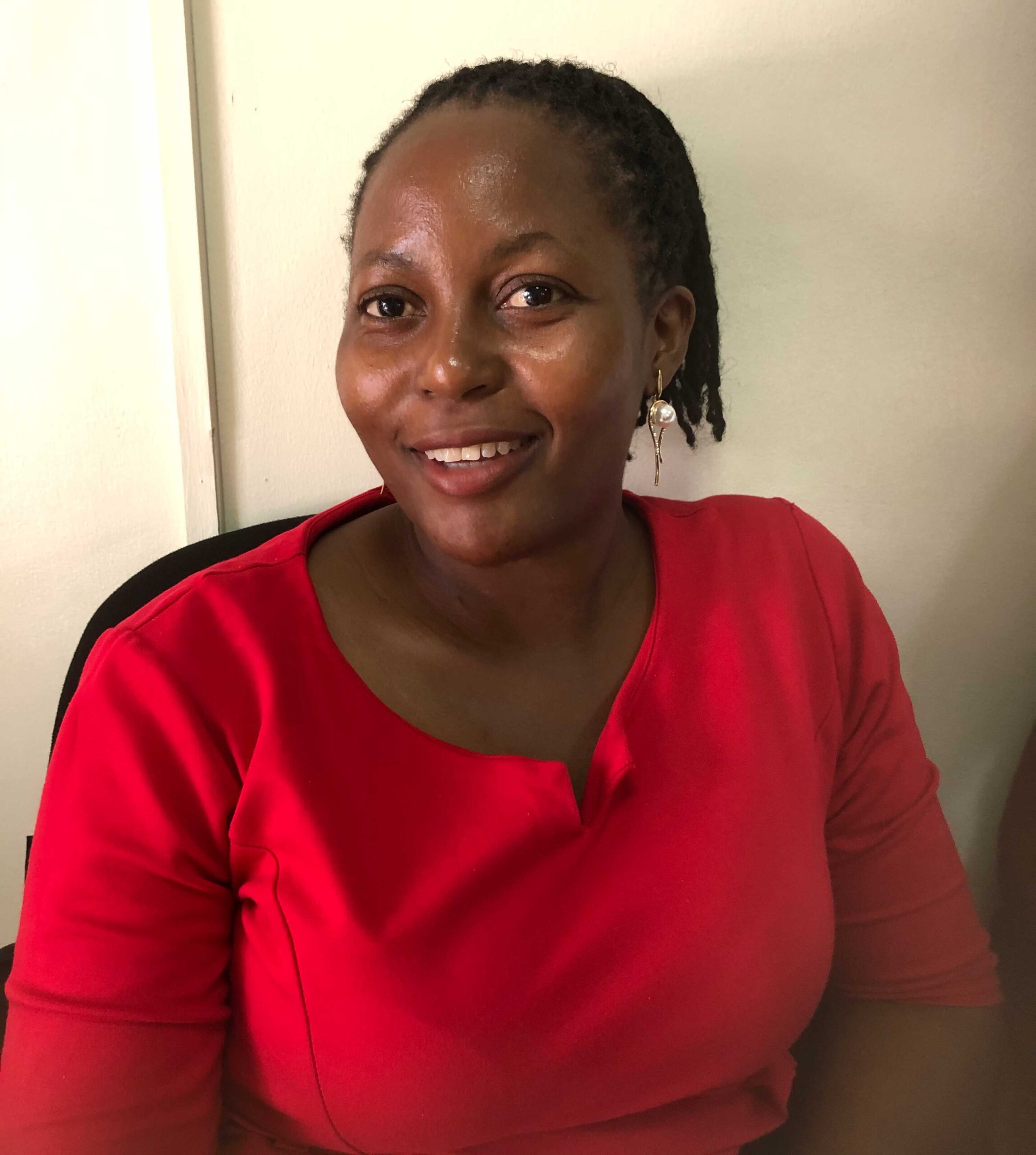
There have been some positive aspects in changes of behaviour brought about by the pandemic. The use of online communication has significantly increased and has been a vital way for Brender to access information in a more inclusive way:
“Another thing … is a positive one… what we call online communication by zoom, maybe WhatsApping or Facebooking.”
However, Brender recognises that this benefit has not been shared by all: “Many people in the villages or in low area don’t know how to use the internet or online communication so I’m lucky enough that I can use it.”
Christine, Mark, Moses and Brender have highlighted some of the varied communication challenges they face both personally and in their professional lives in bringing vital information to all people with disabilities in Uganda. The new FCDO disability strategy recognises the importance of timely, accurate, accessible information to support informed decision-making. CBM UK is committed to partnering with OPDs to actively identify and address the range of physical, institutional, attitudinal, and information barriers that reduce the independence, choice and decision-making of people with disabilities in all aspects of their lives.
Footnote:
The disability activists took part in the CBM-supported Bridge CRPD-SDG training programme. Bridge CRPD-SDGs Training Initiative is an intensive training programme developed by the International Disability Alliance and International Disability and Development Consortium for organisations of persons with disabilities, covering the UN Convention on the Rights of Persons with Disabilities (CPRD) and Sustainable Development Goals (SDGs), to reinforce their advocacy for inclusion and realisation of rights of persons with disabilities.

